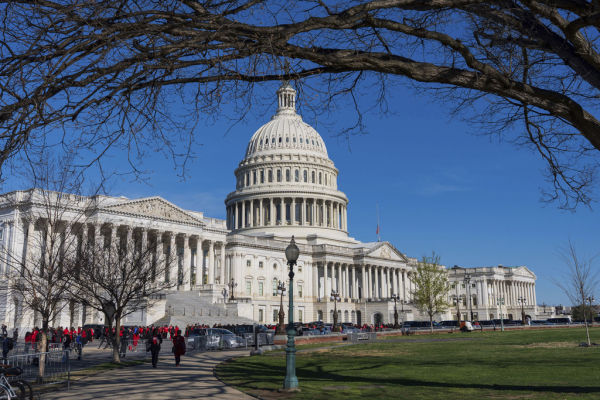
Senate Panel Rejects GOP Move to Dismantle CFPB \ TezzBuzz \ Washington DC \ Mary Sidiqi \ Evening Edition \ Senate Republicans failed to remove funding for the Consumer Financial Protection Bureau (CFPB) after the Senate parliamentarian flagged the idea. Opponents, led by Democrats, celebrated this procedural rebuke as a win for consumer protection. The ruling forces GOP senators to remove the proposal or seek 60 votes — difficult given the Senate’s narrow majority.
Quick Looks
- Senate Republicans aimed to zero out CFPB funding—a $6.4 billion cut—but were halted by the Senate parliamentarian under the Byrd Rule.
- The move would have eliminated the agency created post‑2008 to defend consumers against financial abuse.
- Sen. Tim Scott pledged to work with the parliamentarian, while Sen. Elizabeth Warren called the GOP effort “reckless” and harmful to U.S. families.
- The parliamentarian also flagged other GOP measures targeting post-crisis financial regulatory bodies, including the Public Company Accounting Oversight Board and the Federal Reserve pay schedule.
- These proposals are part of a broader reconciliation bill that includes tax cuts, national security funding, and social spending reductions totaling approximately $2.4 trillion in debt.
- The Byrd Rule requires compliance with deficit-neutral provisions, so violations force senators to secure 60 votes—difficult in today’s divided Senate.
- More rulings are expected soon involving environmental policy rollbacks and Defense Department budget provisions.
Deep Look
The Senate’s budget reconciliation process took a dramatic turn as Republican efforts to defund the Consumer Financial Protection Bureau (CFPB) were derailed by a procedural ruling that could reverberate across the entirety of President Donald Trump’s economic agenda. This setback, delivered by the Senate parliamentarian, is more than a bureaucratic footnote—it’s a vivid reminder that even with political majorities, structural rules continue to shape and limit what lawmakers can actually accomplish.
At the center of this clash is the CFPB, a signature post-2008 financial reform agency that has long been a target of conservative lawmakers and Trump administration officials who view it as a symbol of regulatory overreach. Republicans on the Senate Banking Committee, led by Senator Tim Scott, aimed to completely zero out the bureau’s $6.4 billion funding as part of a sweeping budget reconciliation package that also includes trillions in tax cuts, national security boosts, and deep cuts to domestic safety net programs.
However, the Senate parliamentarian ruled that the move to defund the CFPB—and other provisions designed to unravel financial regulatory institutions—violated the Byrd Rule. This rule, a procedural safeguard named after the late Senator Robert Byrd, bars the inclusion of non-budgetary policy provisions in reconciliation bills, which are supposed to be narrowly focused on changes that directly affect government spending and revenue.
In practical terms, the ruling means that unless Republicans can muster 60 votes in the Senate—an improbable feat in a chamber currently divided 53-47—they will be forced to strip these provisions from the bill. This decision represents not just a tactical loss, but a significant strategic complication for Trump and Senate GOP leaders as they race to pass his flagship economic package by the symbolic July 4 deadline.
For Democrats, the parliamentarian’s ruling was a resounding victory. Senator Elizabeth Warren, the architect of the CFPB and its most vocal defender, hailed the decision as a crucial defense of consumer rights and economic fairness. She warned that dismantling the agency would empower financial institutions to exploit Americans and destabilize the financial system. Her statements reflected a broader Democratic argument that the Republican bill isn’t merely about budgeting—it’s an ideological crusade against public oversight and social support structures.
Complicating matters further, the parliamentarian didn’t just object to the CFPB cut. Other provisions—such as efforts to reduce the Federal Reserve’s payroll costs, eliminate the Financial Research Fund, and reassign the Public Company Accounting Oversight Board to the Securities and Exchange Commission—were also ruled inadmissible under the Byrd Rule. These initiatives, collectively aimed at shrinking federal regulatory reach, represent a core element of the GOP’s deregulatory vision. Their disqualification may force Republicans to rethink the structure of the bill or separate out these proposals into future legislation.
What’s at stake goes beyond the particulars of the CFPB or even the fate of this specific reconciliation package. The broader legislative strategy deployed by the Trump administration and its congressional allies relies heavily on the reconciliation process precisely because it bypasses the 60-vote threshold required to overcome a filibuster. But that shortcut comes with strict rules—and those rules, as this case shows, can’t be easily ignored.
The budget bill itself is massive, proposing to extend $4.5 trillion in Trump-era tax cuts, add $350 billion in defense and immigration enforcement spending, and cut $1 trillion from Medicaid, food assistance, and other entitlement programs. According to the Congressional Budget Office, the plan would add more than $2.4 trillion to the deficit over the next decade and result in nearly 11 million people losing health coverage. These figures underscore the bill’s magnitude and why each provision matters—not just politically, but economically and socially.
As more provisions undergo scrutiny in the coming days—including proposed rollbacks of environmental protections and defense oversight requirements—the outcome will help determine the final shape of the legislation and possibly the limits of reconciliation as a vehicle for sweeping reform. The ruling has already forced Republicans to make hard choices between preserving ideological goals and passing a legally viable package. The next few weeks will reveal whether they can thread that needle or will face even greater internal fractures.
Ultimately, the parliamentarian’s rejection of key provisions offers a vivid example of how procedural rules—often unseen and underappreciated by the public—can wield as much power as elected lawmakers in shaping national policy. For President Trump, who is aiming to deliver a legacy-defining legislative victory early in his second term, these hurdles serve as a reminder that commanding headlines is one thing—but navigating Senate bylaws is another challenge entirely.
More on US News
Senate Panel Rejects Senate Panel Rejects Senate Panel Rejects
-
4 ganja peddlers from Maharashtra held in Hyderabad, 166 kg ganja seized

-
Telangana police on rescue of kidnapped minor girl attacked by accused’s family

-
US intelligence community was wrong on Iran’s nuclear programme: Trump

-
AI plane crash: Last rites of crew member Irfan Shaikh held in Maha

-
Pawan Kalyan’s ‘Hari Hara Veera Mallu’ release date announced
